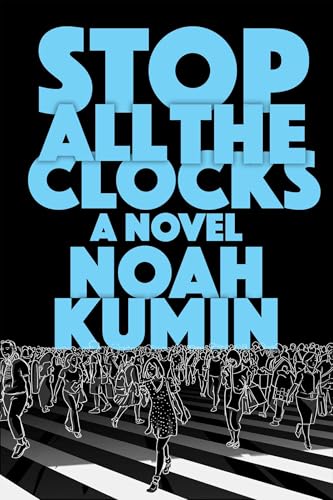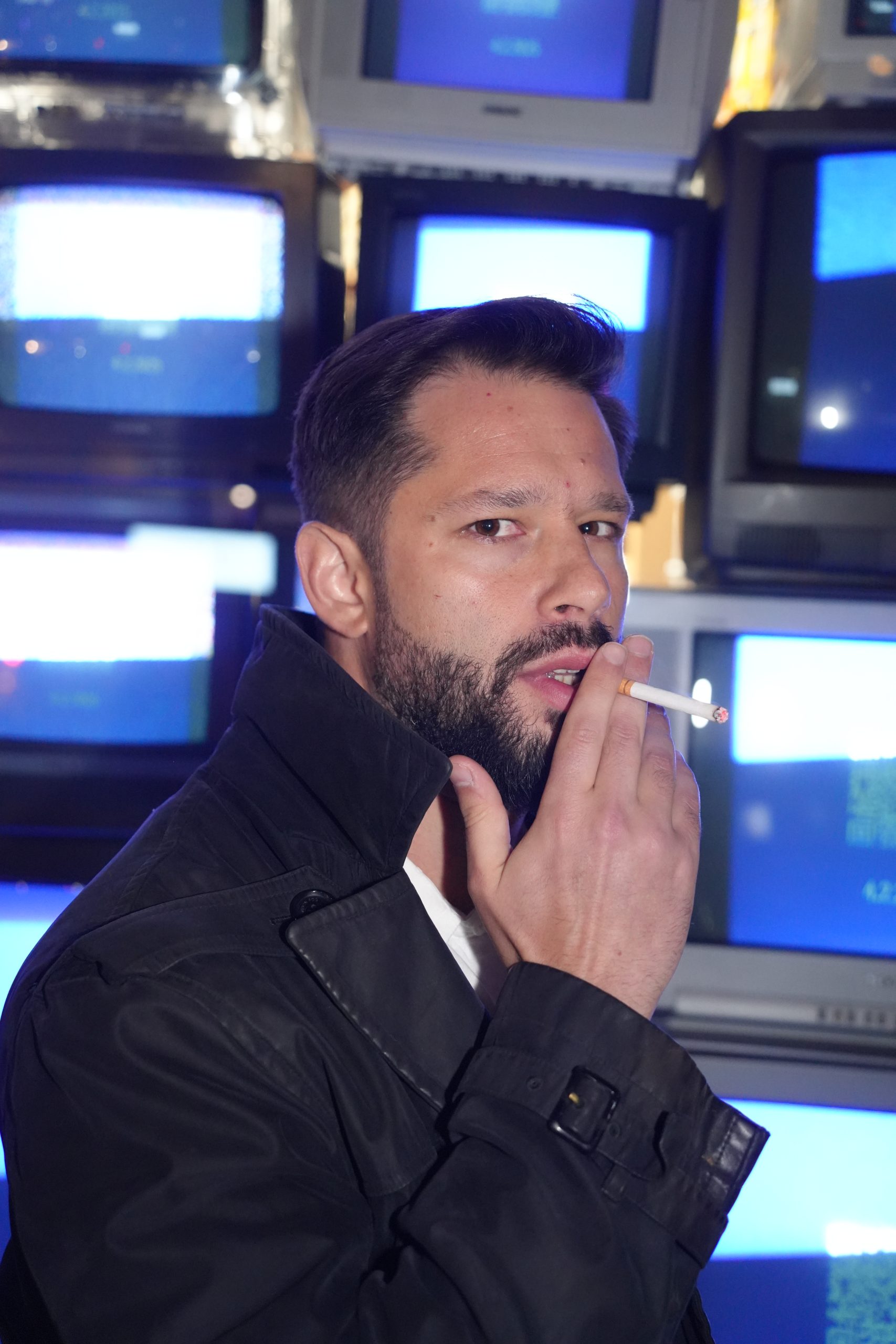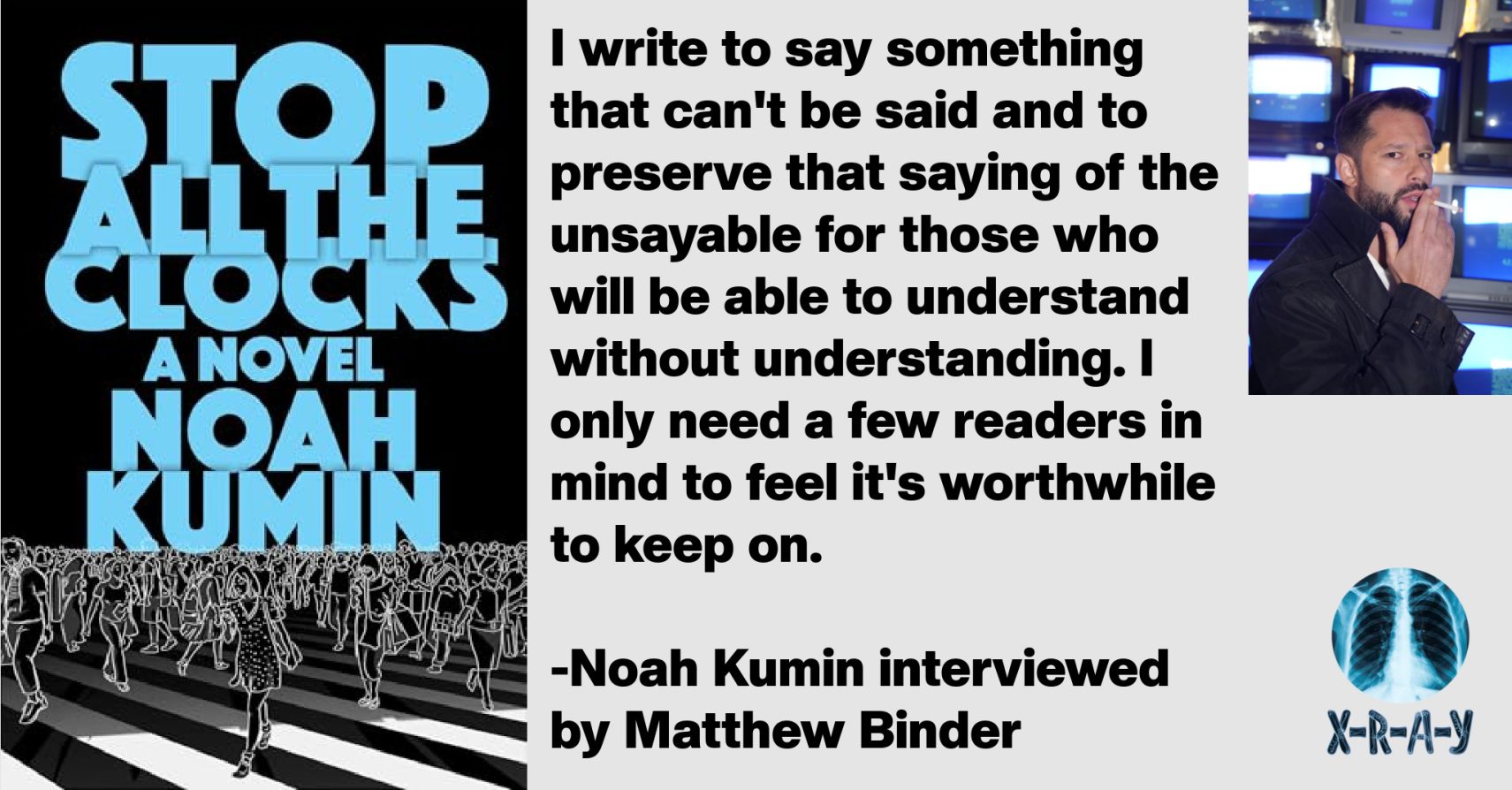 In 2023, I published a novel called Pure Cosmos Club. For reasons still unclear to me, it was embraced by the downtown New York literary scene loosely known as “Dimes Square.” Despite the association, I never made real inroads—not because of the rumors (funded by Peter Thiel? Christian reactionaries?) but simply because I was too shy.
In 2023, I published a novel called Pure Cosmos Club. For reasons still unclear to me, it was embraced by the downtown New York literary scene loosely known as “Dimes Square.” Despite the association, I never made real inroads—not because of the rumors (funded by Peter Thiel? Christian reactionaries?) but simply because I was too shy.
One of the scene’s more prominent figures is Noah Kumin, founder of The Mars Review of Books. From afar, I watched his profile rise through various ventures: the magazine, a popular podcast, and a reputation for hosting raucous literary parties.
When I saw on social media that he had written a novel, I reached out and asked him to send me a copy. Stop All the Clocks centers on Mona Veigh, a misanthropic programmer who’s developed a large language model capable of generating poetry. Her company, Hildegard 2.0, is acquired by a mysterious tech magnate named Avram Parr—who, we soon learn, has committed “suicide.” Something about Parr’s death doesn’t sit right with Veigh, and she sets out to solve the mystery, placing herself in the crosshairs of a plot by powerful tech overlords bent on reshaping human civilization.
I’m pleased to report that Stop All the Clocks is a first-rate techno-thriller—sharp, urgent, and extremely timely.
 Matthew Binder: You’ve written two books with technology at their center, The Machine War and Stop All the Clocks. Given your background and clear interest in tech — a field where you could have pursued a lucrative career — what drew you toward committing yourself to writing instead?
Matthew Binder: You’ve written two books with technology at their center, The Machine War and Stop All the Clocks. Given your background and clear interest in tech — a field where you could have pursued a lucrative career — what drew you toward committing yourself to writing instead?
Noah Kumin: Robert Graves said something like: “There’s no money in poetry. But there’s no poetry in money, either.”
MB: With Stop All the Clocks, you’ve written a literary thriller. Which writers — whether literary or thriller — most shaped your approach to Stop All the Clocks?
NK: I learned a lot from the writers I love. You might be able to guess who a few of them are. But I don’t think I leaned on any of them very heavily for Stop All the Clocks. John Pistelli argued in his wonderfully perceptive review that this book heralds something entirely new: a break with the decayed modernist “literary fiction” model which has provided, over the past 75 years or so, ever-diminishing returns. Stop All the Clocks is meant to be a new type novel of ideas for the 21st century, and I’m not certain it has any direct predecessors. There’s a German term I like: kulturroman, the novel of culture. We haven’t had many of those in the States lately—not in a real way—and it’s time we did.
MB: How do you begin a novel? Did you know what was going to happen in the end from the very beginning?
NK: I started with the last lines of the last poem, which came to my mind from a place I did not understand. I wanted to know what the poem meant. I had an idea of the sensation that the reader should have when he or she has finished the book. And I worked backwards from there.
MB: In your novel, Mona creates a poetry-generating AI called Hildegard. At one point, she realizes her invention might contribute to the flattening of the literary landscape. I’ll admit I’m too wary of the future to follow the latest developments closely, but it seems inevitable that a flood of AI-generated novels is on the way — if it hasn’t already begun. How worried are you that human novelists could become obsolete, or do you think there are aspects of storytelling that only humans can capture?
NK: Certainly LLMs will be able to outcompete humans at the generation of satisfactory bodice-rippers and pulp thrillers. But it doesn’t do any good to worry. I write to say something that can’t be said and to preserve that saying of the unsayable for those who will be able to understand without understanding. I only need a few readers in mind to feel it’s worthwhile to keep on.
MB: For a long time, the tech world was associated with the Left, but today Big Tech seems more aligned with the Right. In Stop All the Clocks, you write journal entries from the perspective of a techno-optimist titan. While the novel avoids falling into the typical Left–Right binary, were you thinking consciously about his political leanings as you wrote those entries?
NK: I wanted to capture for posterity a new sort of person who is emerging in our age, as Turgenev did with Bazarov in Fathers and Sons. Not necessarily a left-right thing, though I understand if some see it that way.
MB: A recent Compact Magazine essay, “The Vanishing White Male Author,” argues that white male writers have been largely shut out of the literary world over the past five years. For example, none of the last 70 finalists for the Center for Fiction’s First Novel Prize have been straight white American men. Since 2020, no white man has been nominated for the New York Public Library’s Young Lions Prize for debut fiction. And notably, not a single white American man born after 1984 has published a story in The New Yorker, while at least 25 other millennial writers have.You studied under Martin Amis at NYU. Given the shifts described in essays like this one, did you and Amis ever discuss how these trends might shape your prospects as a fiction writer?
NK: Yes, it’s an interesting development. I suppose it means the field is pretty open for me. If I were to win one of those awards or have a short story published in the New Yorker, it might well generate a lot of interest and move a lot of product, since it’s such a rarity these days for those publications. But this is all business talk. Nothing like that came up when I was being mentored by Amis. He only talked craft, and I would have felt monstrously impertinent asking the great man about anything pertaining to business or money, though he is the author of the great chronicle of business and money, Money. Amis recognized that I had a good feel for voice and wanted me to focus more on my plotting. He told me to always keep in mind that the reader is just as busy and put upon as I am—advice which I feel has stood me in good stead.
MB: Your publisher, Arcade, an imprint of Skyhorse, has a reputation for taking risks on work that other houses might find too controversial. What was your experience like navigating the publishing world and landing with Arcade?
NK: It was a strange journey. It feels a little gauche to go over it. Sorry. But I’m very grateful to the team at Arcade for their intelligence and acumen.
MB: A couple of years ago, you started The Mars Review of Books to publish serious literary criticism. I read that you’ve lately been more focused on editing than writing. Given that you’ve just published two books, is that still true?
NK: The great Italian writer-publisher Roberto Calasso remarked that to be both a publisher and a writer is a bit like being both a commodities trader and a commodity. It’s a wonderful quip and absolutely true. It does lead to some schizophrenic tendencies. As a writer I try to write only what interests me. But as a publisher I must be a businessman first. Luckily I know how to compartmentalize.
MB: What’s next for you?
NK: I’m writing a book of nonfiction, tentatively titled The Mystagogues, about occult secrets in the work of a handful of 20th century writers. Either I’m crazy or I’m noticing something very important that most critics over the past 100 years have failed to notice. I feel it could actually have quite a broad audience, though it’s technically “literary criticism.”

